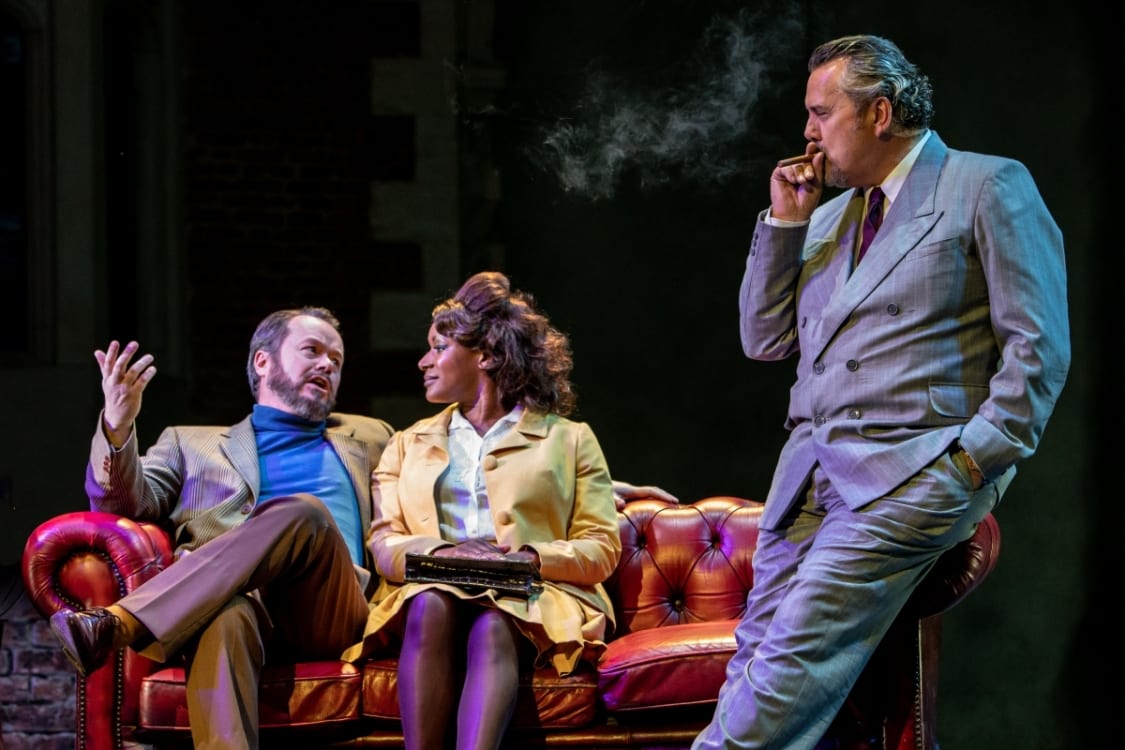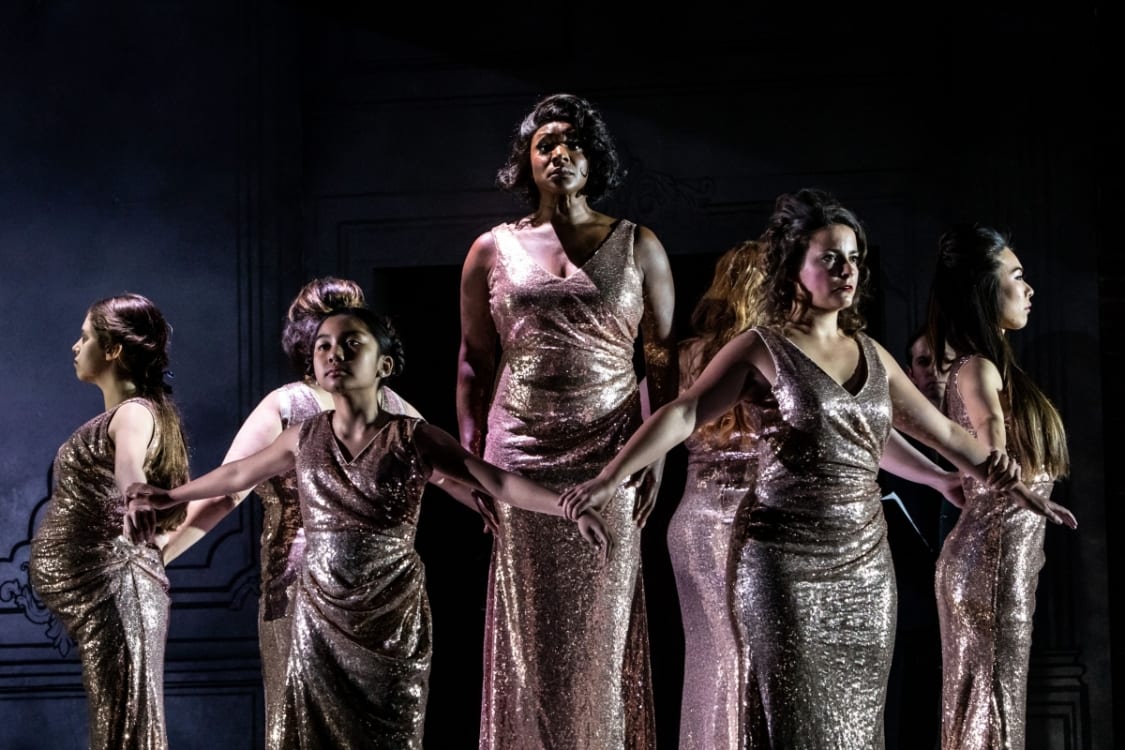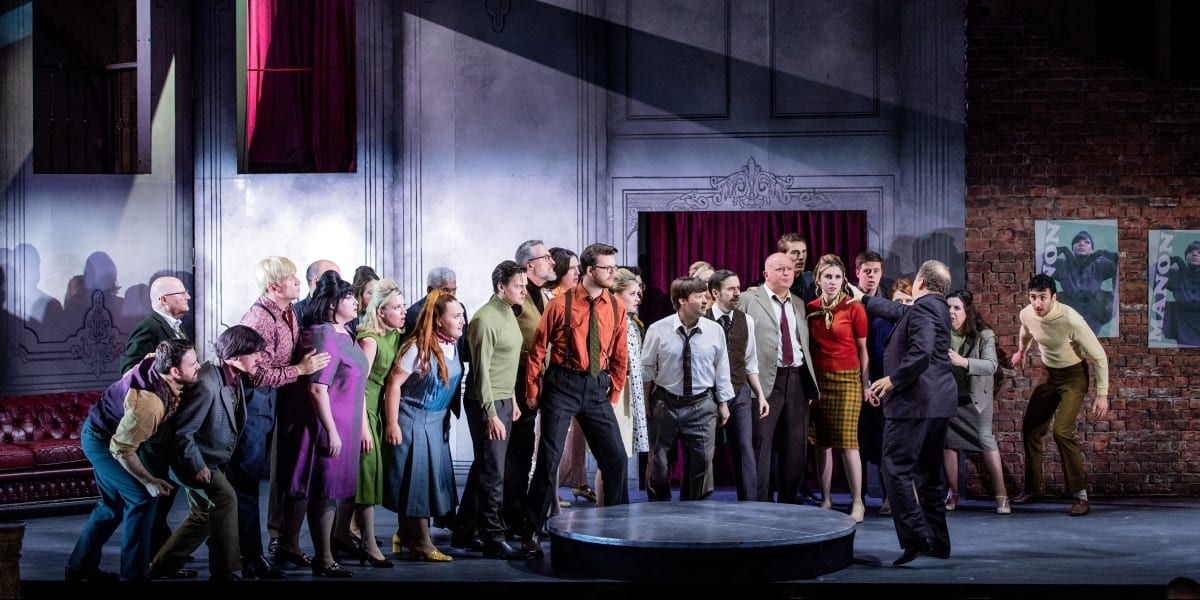Opera Holland Park, famed for its nuanced take on opera outdoors, opened its summer season with Puccini’s pivotal 1893 opera, Manon Lescaut. The premiere of this new production, under Polish director Karolina Sofulak, seemed to inflate stereotyped Parisian tropes amid the swinging age of the ’60s. Structured around yet another fated love-triangle, incurable flirt Manon is propelled into the ugly side of beauty. Wedged between the testosterone-charged duel of Peter Auty’s Des Grieux, and Stephen Richardson’s Geronte di Ravoir, Manon’s demise is fuelled by the materiality that comforts her validation — be it jewellery or lavish boudoir. Achingly tragic in premise, OHP’s adaptation seeped quite the contrary. Surely sought to refresh Abbé Prévost’s 18th-century novel, L’histoire du chevalier des Grieux et de Manon Lescaut, OHP’s attempt to modernise the work by truncating the opera left its audience questioning narrative and sentiment alike. Forewarned by Director of Opera, James Clutton, that Manon herself; soprano Elizabeth Llewellyn was recovering from laryngitis, this performance was plagued by such disposition from the get-go.
Set within a cocktail bar — equipped with silver stools and trendy exposed brickwork for the majority of the opening two acts, Sofulak’s contemporary setting felt disjointed. Designer George Johnson-Leigh had cast members adorned in a fusion between the age of Beatles-mania and military jackets. Manon’s entry saw her in a yellow tailored suit and skirt, complete with a small leather clutch. Supposedly depicting a teenage girl barely on the cusp of womanhood, this attire seemed somewhat disjunct to the narrative of the libretto. Power-dressing is a statement for one who is assured and wary of their societal position; quite the contrary to our malleable protagonist. Stephen Richardson’s portrayal of di Ravoir carried the grandeur of authority — his commanding demeanour on-stage perhaps compensating for the paternal role Manon was deprived of. Unfortunately, Elizabeth Llewellyn’s singing and acting carried a lukewarm execution. The leading soprano’s voice sounded tenuous and far too light — Manon calls for a vivacious teen, not a frail Mimi. During the euphoric love-duets, Llewellyn’s voice battled to be heard; projection feeling a little muffled.
However, the City of London Sinfonia under the baton of Peter Robinson was the night’s championing force. Important Puccinian lines were played attentively, and the orchestra’s general sense of pace appropriately matched on-stage happenings. The wind and percussion musicians were the most ardent.
Despite Manon’s somewhat half-hearted presence, Paul Carey Jones’ portrayal of bachelor brother Lescaut, articulated playful charisma. Torn between positioning his sister as a commodity for macho self-gain or as a watchful older brother, Jones’ versatility was compelling. His acting was carried more romantic intent than her two suitors. Wary of Llewellyn’s throat infection, Manon’s two affairs severed any sense of seduction by keeping their distance, quite literally on opposing ends of the stage.

Peter Auty’s Des Grieux was assured and charming — graceful transitions between his chest and head voice typified genuine turmoil. Masterful in execution, Auty’s awareness of the role felt trusting. Moreover, the second half of the opera featured a podium of which Manon and her ‘others’ stood around. Dolled-up in sequin dresses; perhaps reaffirming the vulnerability of youth, the girls held hands. Sofulak’s staged cyclicality represented both Manon’s beauty at the cause of her demise, but perhaps more poignantly, that this destruction affects women of all ages and demographics; from child to a pregnant woman. A powerful comment on the male gaze, this metaphor; whilst well-thought out in principle, felt a little clouded on actual execution. The opera concluded by Manon’s illness; brief and undeveloped in this production, taking over, whilst she stood beneath a flickering streetlight. All in all, the production lacked both lustre and life; failing to evoke the tragedy the plot is riddled with.

